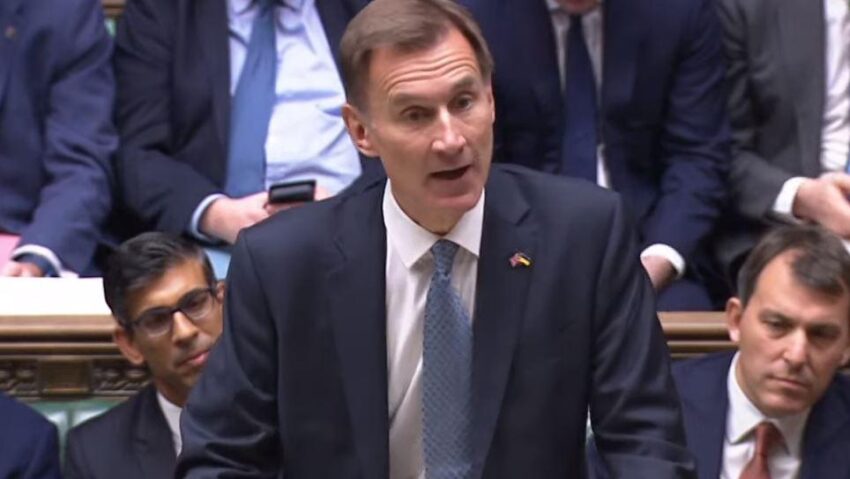In preparation for this week’s Budget announcement, Jeremy Hunt is contemplating an elevation in business class airfares as part of a series of measures targeting affluent individuals to finance a tax reduction.
The Chancellor, alongside Prime Minister Rishi Sunak, engaged in discussions last night, fine-tuning the details for Wednesday’s statement.
It’s understood that they are considering reducing National Insurance or income tax by 1p or 2p. However, to offset this reduction, a range of measures is being formulated, primarily focusing on the wealthy.
One proposal under scrutiny involves augmenting air passenger duty for business class travellers, potentially generating hundreds of millions of pounds in revenue.
Speaking yesterday morning, Mr Hunt underscored his “moral duty” to enhance workers’ financial prospects. Yet, he acknowledged fiscal constraints, expressing a necessity for prudence akin to Gordon Brown rather than indulging in largesse akin to Nigel Lawson.
Hunt told Sky News, “It’s going to be a prudent and responsible Budget for long-term growth. When it comes to tax cuts, I do believe, when you look around the world, the countries with lower tax tend to grow faster – America, Asia.”
The propositions aimed at wealthier demographics have evoked a contentious response from some prominent Tory MPs.
Former Cabinet Minister Sir John Redwood advocated for a tax-cutting Budget devoid of new levies. He emphasized the potency of lower tax rates in fostering economic growth.
Mr Hunt aims to identify additional revenue streams and trim expenditures to facilitate a reduction in National Insurance or income tax by 2p.
Air passenger duty is split into three categories: a reduced level for economy, a standard level for business class and a higher level for private jets.
For those in business class, the charge is £13 for domestic flights, £26 for up to 2,000 miles, £191 for up to 5,500 miles and £200 over that.
However, last year, Ryanair cautioned against imposing additional taxes, citing the competitive disadvantage faced by UK airports compared to counterparts in other nations.
If the Chancellor proceeds with the hike, it would contravene a pledge made to the airline industry in September to refrain from imposing new taxes to deter air travel.
A prominent industry insider remarked, “It’s certainly against the spirit of the promise No 10 made in September not to put up taxes on air travel and has come out of the blue when all the discussion with the Government has been about working together to decarbonise aviation.”
Such a move, in the midst of collaborative efforts to reduce carbon emissions, risks rendering the UK aviation sector less competitive and could lead to escalated prices for consumers.


